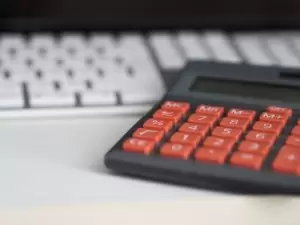 A scholar once said that the only certain thing about the future is its uncertainty. This same principle applies to your personal life and includes your career, your finances, your small business that you might have and your relationships both within and outside your family. You can never be too sure about what the future holds and therefore you need to have a clear plan of how you intend to face it in case of the unexpected happening. Preparing for emergencies and putting risk mitigation measures in place is one of the most forgotten personal financial planning weapons that every prudent individual need to have in their arsenal.
A scholar once said that the only certain thing about the future is its uncertainty. This same principle applies to your personal life and includes your career, your finances, your small business that you might have and your relationships both within and outside your family. You can never be too sure about what the future holds and therefore you need to have a clear plan of how you intend to face it in case of the unexpected happening. Preparing for emergencies and putting risk mitigation measures in place is one of the most forgotten personal financial planning weapons that every prudent individual need to have in their arsenal.
Just like in business, even after having planned and budgeted very well, there are moments in your life when you will have cash flow challenges and you will need to look for external sources of short-term financing to bridge the funding gap. However, there are instances when you might have big urgent financial needs such as paying a huge hospital bill for a sick family member; and you are unable to get the funding required immediately. This might lead to sale of household goods and other personal items in order to raise the money to pay the hospital bills; with the results sometimes being devastating if the patient never recovers.
To avoid such scenarios, you need to plan you finances well and put in place measures to deal with such eventualities when they occur.
Life Insurance
One of the priority things to do is to have a life insurance plan for yourself and your family. This might appear like an unnecessary monthly expense that eats into your income, but when death strikes at your door, you do not want to leave your dependents financially distressed. Preparing for the possibility that someday you will be gone and you want your family to continue living comfortably when you are no more gives you peace of mind when you are engaged in your daily activities. You should view life insurance as your investment for the future of your family; that way it is not seen as a burden denting your monthly income.
Health Insurance
Closely related to life insurance is health insurance. To be economically productive you need to be strong and in good health. Whenever you fall sick, you both lose money by stopping your business or by not going to your workplace as well as lose the money spent on hospital bills and medication. Depending on how serious your illness is, the hospital bills and medication costs can be sky rocketing and drain all your life savings and in some cases lead you to huge debts. To avoid such an eventuality, you can transfer that financial burden to another party through health insurance. You will be paying small monthly or annual premiums that will not affect your personal cash flows in any significant way; while on the other end covering all your healthcare costs in a big way when disease strikes and leaving your savings intact.
Property Insurance
Most people insure their cars because is a mandatory requirement by the law; but forget to insure all their other properties that are prone to disasters as well. Imagine what would happen if you one day came home and found your whole house on fire! After everything is burnt to ashes, you will need to restart your life again from scratch by building or buying a new house as well as acquiring new future and other household items. Without a prior insurance policy covering your property, you will need to wipe out your savings and borrow more cash I order to get back your fully furnished house to its feet. Covering your property through insurance for such risks such as floods, fires and theft is therefore a priority thing to do for a financially prudent person.
Emergency Fund
Even with all the above insurance covers, you will always have small unexpected cash needs that may not fall into any of the above insurance plans. To be financially safe and sail through those emergencies smoothly, you will need to create a personal emergency fund that you make regular deposits into every month. This will cover your random expenses that arise from time to time such as contributions towards the hospital bill of a friend or workmate, repair of your car while on a road trip, buying an extra pair of pants if you forgot one when packing for a business trip among other smaller emergencies.
In summary, you can choose to face your unexpected financial obligations as and when they occur or you can choose to prepare for them in advance through insurance and creation of an emergency fund. The latter will give you peace of mind and leave your savings intact when the risk occurs, while the other option will leave you financially distressed when the emergency strikes.
James Hendrickson is an internet entrepreneur, blogging junky, hunter and personal finance geek. When he’s not lurking in coffee shops in Portland, Oregon, you’ll find him in the Pacific Northwest’s great outdoors. James has a masters degree in Sociology from the University of Maryland at College Park and a Bachelors degree on Sociology from Earlham College. He loves individual stocks, bonds and precious metals.
